All children are special
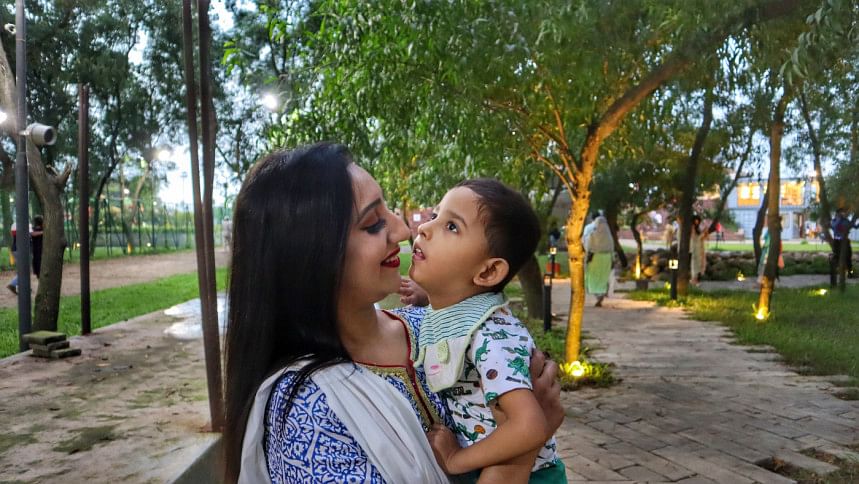
Mothers are known for their strength and courage, and for more than just how they bring children into the world. Raising children is a struggle, especially when they are afflicted with ailments. Farha Hasan and Nazli Hussain are just two of countless such special mothers who have made mountains move with their love.
A battle against cerebral palsy
Farha Hasan, a teacher turned housewife, had a turbulent pregnancy. At seven months, her baby, Fayzan Hasan Raeid, came into the world, a little smaller, a little weaker but with oodles of strength and survivor's instinct.
After 12 days at the NICU, the little fighter came out into the world. In these 12 days, the young champ had battled breathing problems and seizures, due to which he would always develop a little differently.
At one year of age, when Fayzan was still unable to either sit or speak, his parents took him to a neurologist, where he was diagnosed with cerebral palsy.
"We started all kinds of therapy for Fayzan straight away — speech therapy, occupational therapy, and physical therapy — everything he needed. But we saw very little improvement," says Farha Hasan.
They travelled across the border to India, but the doctors there had the same verdict. Cerebral palsy has no cure.
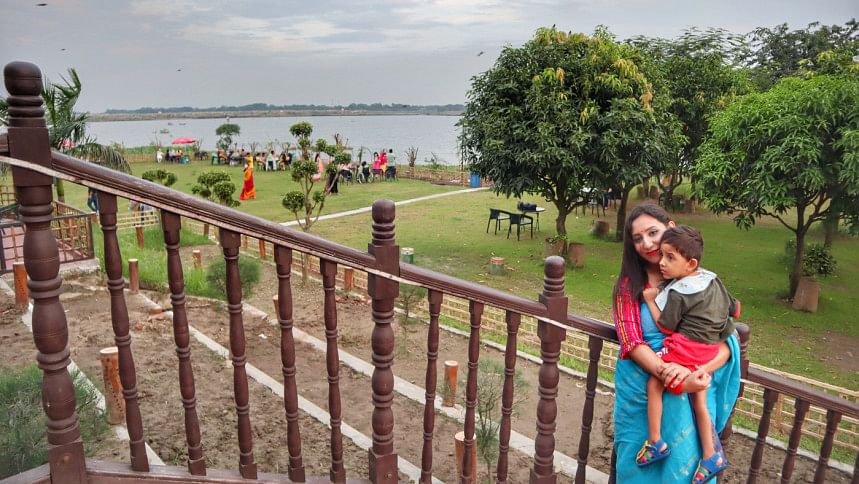
It was undoubtedly a bitter pill to swallow but Farha and her partner had no choice but to accept it. Almost six years down, and several therapy experiences later, Farha feels that there are various centres that offer adequate forms of rehabilitation and treatment and a number of qualified doctors for this condition, but compared to first world countries such as USA and Canada, there are visible gaps.
"At first, it would at first feel very bad when people used terms such as 'protibondhi' for Fayzan. Because he is so much more than that. He is remarkably intelligent; he is expressive and he is such a fun-loving child." Farha mentions that she never let his physical condition get in the way of life. "We have fun, we travel, even if we have to limit it to fit his convenience."
Raeid is his mother's pride and joy. However, that has not deterred people from saying rude things about him in front of him, or her. From being blamed for her son's condition to others taunting her son with words such as "autistic", she and her family have heard and dealt with it all. Despite this, she has not limited Raeid in any way. "The world belongs as much to my son, as it does to other children. And he has every right to enjoy it."
Farha believes that the Almighty has entrusted her and other parents like her with a most challenging task, but she feels that there are certain things that are beyond human control. "The world is not over for us, nor is it for our kids. Enjoy your children for the blessings that they are and would always be," she says.
Struggles of building a support system
Nazli Hussain is an architect by profession and a mother by heart. Despite a smooth pregnancy, her baby developed heartbeat irregularities and needed to be taken out via c-section. Upon coming into this world, Nilia Ayleen Iqbal was found to have underdeveloped lungs and two large holes in her heart.
The doctors may have given up hope, but not little Nilia. She spent 22 days in the NICU, before finally coming into her mother's arms. "She was also diagnosed with Down's syndrome but ironically, that became the least of our worries. The first priority had become to save her life. We went to India, and Nilia had her life-saving open heart surgery in Bangalore when she was only five-and-a-half months old."
Upon recovery and Nilia's arrival back to Dhaka, Nazli and her family started to look for doctors who might be able to help her with Down's. She looked into various therapies but there were no visible results. "We tried many different places, but no doctor really showed us the correct way forward, even when they had previously handled special needs cases."
Around the time when Nilia was one, her neck had still not settled and she was unable to sit without support. Around the same time, she also suffered from infantile spasms, which further delayed her development.
She was prescribed high-powered medicines which bulked her up and made therapy virtually impossible. Nazli tried to contact day-care facilities in Dhaka but most of these were unable to help her out.
"We finally found something in Gulshan which clicked for us -- it was called the Sunshine Learning Centre. Nilia continues there till date," says Hussain.
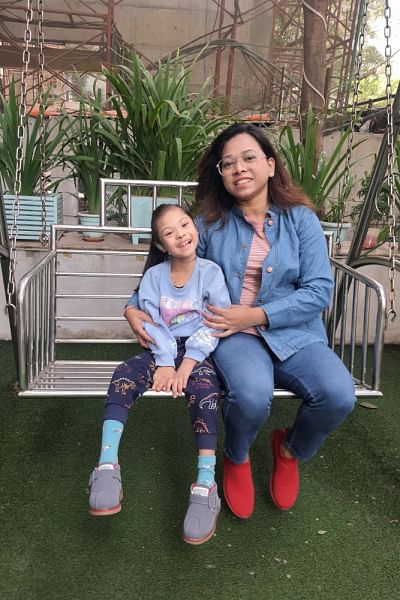
Just as little Nilia was turning five, things took another bad turn. The spasms came back and she forgot most of what therapy had taught her. Dissatisfied with how neurological tests were run in Bangladesh, and judging by Nilia's deteriorating situation, Nazli and her family decided to take her to Bumrungrad, Thailand where they found out that Nilia had impaired hearing, forcing her to wear aides.
"We try to adjust Nilia's schedule according to her most immediate needs. Due to the seizures, her therapy sessions have taken a hit, but we are hopeful that she will bounce back because she is a sharp, fun-loving child."
Nazli thanks her support system for the sheer love they have for Nilia. "I take my daughter out with me on office picnics and outings, to family gatherings, and super shops. Not once have I come across an unpleasant soul. I love that people genuinely care about Nilia and her well-being, and I feel that more people should bring out their Down's babies into the open and let them live freely. It will work wonders for their development!"
Photo: Farha Hassan & Nazli Hussain

 For all latest news, follow The Daily Star's Google News channel.
For all latest news, follow The Daily Star's Google News channel. 


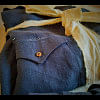
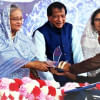
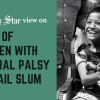



Comments